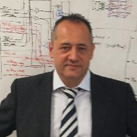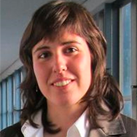Speakers

M. Aldinucci - University of Torino
Marco Aldinucci is a full professor and P.I. of the Parallel Computing research group at the University of Torino. He received his PhD from the University of Pisa (2003), and he has been a researcher at the Italian National Research Council (CNR). He authored over 120+ scientific articles. He is the recipient of the HPC Advisory Council University Award 2011, the NVidia Research award 2013, the IBM Faculty Award 2015, the Autodesk award 2021. He is a research fellow at Links foundation. He has participated in over 15 EU-funded research projects on parallel and cloud and high-performance computing attracting over 10M€ of research funds to the University of Torino. He has been the Italian delegate at the Governing Board of the EuroHPC Joint Undertaking (2018-2021). He has led the design of the HPC4AI laboratory. He is the founding director of the CINI HPC Key Technologies and Tools national laboratory, gathering researchers from 38 Italian Universities. He is co-leading FureHPC, the technological spoke of the Italian National Centre on HPC (ICSC). He co-designed the FastFlow programming framework and several other libraries for parallel computing.

M. Danelutto - University of Pisa
Marco Danelutto is currently a professor with the Department of Computer Science, University of Pisa, Italy. He was responsible for the University of Pisa research unit in different EU funded projects (CoreGRID, GRIDcomp, ParaPhrase, REPARA, and RePhrase). He has authored more than 150 papers in refereed international journals and conferences. His main research interests include parallel programming models, particularly in the area of parallel design patterns and algorithmic skeletons.

F. Dazzi - University of Pisa
Patrizio Dazzi is an Assistant Professor at the University of Pisa and co-founder and co-head of the Pervasive AI Laboratory. His primary research interest is in high-performance distributed computing, resulting in over 100 published papers in conferences, workshops, and journals, as well as a book published by Springer titled Cloud Broker and Cloudlet for Workflow Scheduling. He is a member of the Executive Committee of the IEEE Technical Committee on Cloud Computing, and he regularly serves as a Program Committee member for renowned conferences such as IEEE CLOUD, EuroPar, ICDCS, IoTDI, CSC, and CCGRID. Patrizio has also contributed to the organization of several conferences dealing with distributed systems, including IEEE ScalCom 2016, HPCS 2017, EuroPar 2018, and GECON 2018. He has served as Program co-chair for the Parallel Computing Conference (ParCo) 2017 and is currently serving as Program chair for IEEE JCC 2023. Patrizio has been the coordinator of the H2020 EU research project ACCORDION and EU-Korea H2020 BASMATI project, both focused on the development of novel strategies for resource management in the Cloud/Edge environments. He is also serving as Innovation Coordinator for the H2020 TEACHING project, focused on intelligent solutions for Cyber-physical systems of systems.

W. Fornaciari - Politecnico di Milano
William Fornaciari, Ph.D., (male) is Associate Professor at POLIMI. He published six books and around 300 papers, collecting 6 best paper awards, one certification of appreciation from IEEE and he filed three international patents on low power design and two on hardware cybersecurity. Since 1993 he is a member of program committees and chair of international conferences in the field of computer architectures, EDA and system-level design. Since 1997 he has been involved in 20 EU- funded international projects and he has been part of the pool of experts of the Call For Tender No. 964-2005 – WING – Watching IST INnovation and knowledge, studying the impact of FP5 and FP6 expenditures to support the identification of FP7 and Horizon2020 research directions. During FP7 he won the 2016 HiPEAC Technology Transfer Award for the output of the CONTREX project, he served as Project Technical Manager of 2PARMA (ranked success story by the EU) and he coordinated the HARPA project where he filed a PCT patent on thermal management. Other contributions were in the projects SMECY and MULTICUBE and CONTREX. In H2020 he coordinates the FET-HPC RECIPE project and also participated to the SafeCOP, M2DC and MANGO projects as principal investigator. In 2021 he is the Project Technical manager of the Euro-HPC TEXTAROSSA project. Since 2021 he is in the board of directors of the CINI labs on Embedded Systems and Smart Manufacturing and of that on High-Performance-Computing, of which he is one of the founders. He cooperated for 20 years with the Technology Transfer Centre of POLIMI, actively cooperating with companies to the development of leading edge products: industrial exploitation of research ideas is one of his main attitudes. In 2019 his team won the Switch to Product (S2P) competition with a solution on the hardware protection from side-channel attacks. His main research interests cover multi/many core architectures, High-Performance-Computing, Design of low power hardware and software, runtime resource management, thermal and power management, and EDA-based design methodologies tailored to enhance the security of IoT/Embedded systems. He is co-author of the first Italian book on embedded systems and he acted as project reviewer for EC funded projects and invited speaker during EU consultation/information workshops.

R. Giorgi - University of Siena
Roberto Giorgi is an Associate Professor at Dept. of Information Engineering, University of Siena, Italy. He has received the eligibility (Italian National Abilitation) as Full-Professor since 30th March 2018. For one year, he was Research Associate at the University of Alabama in Huntsville, USA. He received his PhD in Computer Engineering and his MS in Electronics Engineering, Summa cum Laude both from University of Pisa, Italy. He coordinated the European Project AXIOM (3.9Meuro cost, 2015-2018, 7 partners), about designing and manufacturing the next generation board for Cyber-Physical Systems. He coordinated the TERAFLUX project (8.5Meuro cost, 2010-2014, 11 partners) in the area of Future and Emerging Technologies for Teradevice Computing. He is member of the HiPEAC Network of Excellence (High Performance Embedded-system Architecture and Compilation) since 2004. He was Deputy Steering Committee in the HiPEAC, Application leader in the ERA project (Embedded Reconfigurable Architectures), participated to SARC (Scalable ARChitectures) and attracted more than 3 Million Euro of Research Funding to the University of Siena in the last decade. He took part in ChARM project, developing software for performance evaluation of ARM-processor based embedded systems with cache memory. He has been IEEE Judge for the IEEE-CSIDC (Computer Society International Design Competition). He led the project ”Bluesign Translator”, which received a 5th worldwide prize by IEEE and top companies, and received the FORUM-P.A. prize by the Italian Ministry of Technological and Scientific Innovation, as absolute winner in the category of “actions for the social integration of disadvantaged people through ICT”. He has been selected by the European Commission as an independent expert for evaluating ICT and HPC European Projects. He is co-author of more than 130 scientific papers. He is Ministry-appointed deputy and director for Uni. Siena in the National Consortium for Informatics (CINI). His current interests include Computer Architecture themes such as Embedded Systems, Multiprocessors, Memory System Performance, Workload Characterization. He is a Lifetime member of ACM and a Senior Member of the IEEE, IEEE Computer Society.

F. Vella - University of Trento
Dr. Flavio Vella is an Assistant Professor at the Information Engineering Computer Science Department at the University of Trento. He leads the High-Performance Computing and Reliable Systems laboratory and is an expert in emerging parallel computing systems, with a focus on irregular computation, large-scale graph analysis, systems for machine learning, logic programming, and quantum computing.

M. Zapater - Politecnico di Losanna (CH)
Marina Zapater is Associate Professor in the REDS Institute since 2020. She obtained a Master on Electronic Engineering and a Master on Telecommunication Engineering from Universitat Politècnica de Catalunya (UPC), Barcelona, Spain, in 2010. After obtaining a PhD fellowship from the International Program of Talent Recruitment from the Spanish government, she started her PhD in Universidad Politecnica de Madrid (UPM), Madrid, Spain. During her PhD, she did two research stays at the PeacLab group in Boston University, for a total duration of 9 months, where she worked on a project in collaboration with Oracle, Inc. After obtaining her PhD in 2015, she became as Assistant Professor in Universidad Complutense de Madrid. In parallel, she started to collaborate with the Embedded Systems Laboratory (ESL) at the Swiss Federal Institute of Technology Lausanne (EPFL). In July 2016, she joined the ESL at EPFL as a post-doctoral researcher, and she moved to Switzerland. In February 2020 she joined the REDS Institute as an Associate Professor. Her research interests include the design and optimisation of novel complex heterogeneous architectures to increase their performance and energy efficiency. Within this framework, her works spans from embedded systems (edge and IoT) to high-performance computing processors, including servers and data centers, as well as the efficient execution of artificial intelligence and deep learning workloads. In this domain, she has co-authored more than 50 papers in top conferences and journals. Since 2016, Marina Zapater has been Scientific Coordinator of 4 European H2020 projects and participates in 3 others, and she co-PI in another 3 projects with industry partners, such as Facebook or Huawei.

M. Guarrasi - CINECA Bologna
Massimiliano Guarrasi has a PhD in Physics with a thesis on the Magneto HydroDinamic modeling of the solar Corona. Since 2012, he works at CINECA, initially in the European Project group and, after few years, also in the High Level Support Team. He was also the technical contact for PRACE Tier-0 projects and starting from 2023 he is the team leader of the User support and Production group.His work ranges from the numerical modelling to code optimization. He is also author of several peer reviewed scientific papers in the fields of astrophysics, chemistry, numerical modelling and computational bioinformatics.

A. Marani - CINECA Bologna
Alessandro Marani has a Master’s Degree in Mathematics, with a thesis on the field of Algebraic Topology. Since 2011, he works as a member of the HPC User Support staff at CINECA, where his focus is on production aspects such as sanity checks, benchmarks and scheduler priority tuning. He also co-operates with OGS, the Italian Institute of Oceanography, for the development of a workflow related to biogeochemistry modeling and forecasting of the Mediterranean Sea. At CINECA, he is in charge of the annual HPC Course of Introduction to Parallel Programming with MPI and OpenMP.